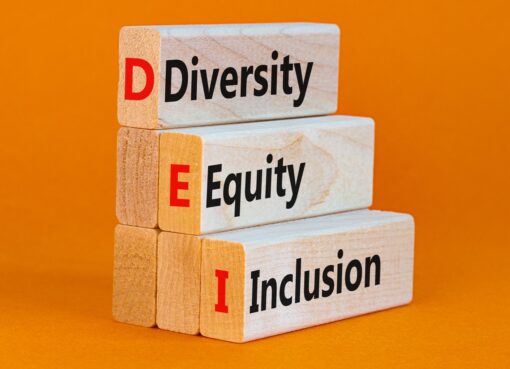Contents
- 1 Navigating the Digital Transformation of Healthcare through EHR Training
- 2 Unveiling the Basics: Constructing a Solid Foundation for Seamless EHR Integration
- 3 Mastering Advanced Features: Harnessing the Power and Potential of EHR Proficiency
- 4 Reaping the Benefits of EHR Training: Elevating Patient Care and Amplifying Productivity
- 5 Conquering Challenges in EHR Training
- 6 EHR Training in Action: Real-world Scenarios and Immersive Learning
- 7 Conclusion
- 8 Frequently Asked Questions: A Deep Dive into the Nuances of EHR Training
- 9 Appendix: Advanced Concepts in EHR Training
First and foremost, in the fast-paced evolution of the healthcare landscape, Electronic Health Records (EHR) have become the linchpin for efficient, secure, and streamlined patient care. In addition, this extensive guide is your indispensable companion through the intricate world of Electronic Health Records training, offering a nuanced roadmap for individuals ranging from novices to seasoned professionals.
Unveiling the Basics: Constructing a Solid Foundation for Seamless EHR Integration
Embark on your EHR journey by immersing yourself in the intricacies of the basics. Delve into fundamental concepts such as data entry, patient record navigation, and user interface familiarity. First and foremost, this foundational knowledge acts as a springboard, ensuring a seamless transition into the more complex functionalities that EHR systems provide.
Read Also: Master Cloud-Based Records Management: Radical Data Handling
In today’s fast-paced, data-driven business landscape, effective records management is the linchpin of success. Moreover, with the exponential growth in data generation, there is a growing need for a robust, scalable, and secure system that can handle the sheer volume of information. This is where Master Cloud-Based Records Management steps in as a revolutionary solution that redefines the way organizations handle their data. In this comprehensive guide, we will explore the intricacies of this innovative method, shedding light on how it not only optimizes data management but also plays a crucial role in improving your Google search rankings.
Exploring Data Entry
Understanding the nuances of data entry is crucial for effective EHR utilization. Moreover, mastering this fundamental skill ensures accurate and comprehensive patient records, laying the groundwork for informed decision-making.
Efficient patient record navigation is the backbone of EHR proficiency. Similarly, acquiring skills in swiftly accessing and interpreting patient records enhances healthcare professionals’ ability to provide timely and effective care.


User Interface Familiarity
A deep dive into the intricacies of the user interface is imperative for a seamless EHR experience. Likewise, familiarity with the interface enhances user efficiency, reducing the learning curve and boosting overall productivity.
Mastering Advanced Features: Harnessing the Power and Potential of EHR Proficiency
Transitioning beyond the basics, delve into the abyss of Electronic Health Records by mastering advanced features. Additionally, developed proficiency in leveraging data analytics, understanding interoperability, and exploring the myriad of customization options. Uncover the vast potential for personalized patient care and data-driven decision-making, thereby elevating your overall prowess in EHR utilization.
Leveraging Data Analytics
Unlock the power of data analytics within EHR systems. Furthermore, acquiring the skill to analyze and interpret data empowers healthcare professionals to derive valuable insights, leading to more informed decision-making and improved patient outcomes.
Understanding Interoperability
Grasp the importance of interoperability in the EHR ecosystem. Moreover, a deep understanding of how different systems communicate and share data ensures a seamless flow of information, fostering collaborative and integrated healthcare.
Exploring Customization Options
Dive into the customization options offered by EHR systems. Similarly, tailoring the system to specific healthcare needs enhances efficiency and enables healthcare professionals to adapt the system to their unique workflows.


Reaping the Benefits of EHR Training: Elevating Patient Care and Amplifying Productivity
Enhanced Patient Care
The empowerment of healthcare professionals through EHR training catalyzes the delivery of more personalized and efficient patient care. Streamlined access to comprehensive patient records equips practitioners to make informed decisions promptly; consequently, enhancing the overall quality of patient care.
Efficiency and Productivity
Mastering the intricacies embedded in EHR systems has a cascading effect on efficiency and productivity within healthcare settings. Trained professionals navigate their workspaces with heightened effectiveness, significantly reducing paperwork and minimizing errors. Furthermore, streamlining workflows by EHR proficiency reduces manual processes and automates routine tasks. This not only enhances efficiency but also minimizes the risk of errors, ensuring a smoother and more productive healthcare environment.
Conquering Challenges in EHR Training
Recognize and surmount the challenges intertwined with EHR training, particularly the initial learning curve. Implementation of strategies such as hands-on workshops, e-learning modules, and mentorship programs is imperative; nevertheless, ensuring a smoother transition for healthcare practitioners.
Ensuring Competence in Data Security
With the digitalization of health records comes the weighty responsibility of safeguarding sensitive information. EHR training must emphatically emphasize data security protocols; nonetheless, ensuring practitioners are well-equipped to handle confidential patient data with the utmost care.
Addressing Resistance to Change
The adoption of EHR systems often encounters resistance from healthcare professionals. Conversely, overcoming this resistance requires effective change management strategies, including communication, training, and ongoing support.


EHR Training in Action: Real-world Scenarios and Immersive Learning
Recognizing the paramount importance of experience-based learning, our guide integrates immersive simulations and real-world scenarios. These elements are meticulously designed to prepare healthcare professionals for the dynamic challenges they might encounter in their daily practice; meanwhile, ensuring practical and effective EHR training.
Immersive Simulations
Simulations provide a risk-free environment for healthcare professionals to practice using EHR systems. These realistic scenarios mimic actual healthcare situations; at the same time, allowing practitioners to apply their knowledge and skills in a controlled setting.
Real-world Challenges
Exposing healthcare professionals to real-world challenges ensures they are well-prepared for the complexities of their daily practice. These challenges may include time-sensitive decision-making, collaboration with multidisciplinary teams, and handling unexpected situations. Moreover, continuous learning is essential for adapting to evolving EHR technologies and features.
Continuous Learning
The dynamic nature of healthcare demands continuous learning. Additionally, integrating ongoing training and professional development into the EHR training program ensures that healthcare professionals stay abreast of the latest advancements and best practices in EHR utilization.
Conclusion
This extensive guide has meticulously navigated the vast landscape of Electronic Health Records training. Initially, from laying the foundation with the basics to exploring advanced features, conquering challenges, and embracing real-world scenarios, the guide aims to equip healthcare professionals with the knowledge and skills essential for thriving in the digital age of healthcare.
Moreover, whether you are a newcomer entering the realm of EHR or a seasoned professional seeking to stay ahead of the curve, the journey into mastering Electronic Health Records training is an ongoing and transformative experience. To clarify, as technology continues to evolve, so does the landscape of healthcare, and with the right training and knowledge, healthcare professionals can confidently navigate this ever-changing frontier. Take a step now, Sign up for Indepth Research to transform your career with vast professional courses dealing with health record management.
By and large, remember the future of healthcare lies in the hands of those who are not just proficient in EHR but also embrace the continuous pursuit of knowledge and innovation. Embrace the digital transformation, elevate patient care, and contribute to the shaping of a more efficient and interconnected healthcare ecosystem.
Frequently Asked Questions: A Deep Dive into the Nuances of EHR Training
What is the significance of Electronic Health Records training in modern healthcare?
Electronic Health Records training is pivotal; conversely, it ensures that healthcare professionals can navigate digital records efficiently, leading to improved patient care and streamlined workflows.
How long does it typically take to complete Electronic Health Records training?
The duration varies, but a comprehensive training program can span from a few weeks to several months; in particular, depending on the depth of the curriculum.
Are there certification programs for Electronic Health Records training?
Absolutely. Various certification programs validate proficiency in Electronic Health Records, enhancing career prospects and demonstrating expertise in EHR usage.
Can EHR training be customized for specific healthcare specialties?
Absolutely. Tailoring EHR training to specific specialties ensures practitioners acquire skills directly applicable to their field; in other words, optimizing the training’s effectiveness.
Is ongoing training necessary as EHR systems evolve?
Yes, continuous training is paramount to keeping pace with evolving EHR technologies and features. Regular updates ensure healthcare professionals remain proficient in utilizing the latest advancements; by and large, in their field.
How can EHR training contribute to career advancement?
Proficiency in EHR is a formidable asset in the healthcare industry, contributing to career advancement by opening doors to roles with higher responsibilities and opportunities for specialization. Furthermore, this proficiency is a strategic investment in one’s career.
Appendix: Advanced Concepts in EHR Training
Blockchain in Healthcare
Explore the integration of blockchain technology in healthcare data management. By and large, blockchain ensures the security and integrity of health records, mitigating the risk of data breaches and unauthorized access.
Artificial Intelligence and Machine Learning
Understand the role of Artificial Intelligence (AI) and Machine Learning (ML) in optimizing EHR systems. Notably, these advanced technologies contribute to predictive analytics, automated diagnostics, and personalized treatment plans.
Telehealth Integration
Delve into the integration of EHR systems with telehealth platforms. Specifically, this synergy enables remote patient monitoring, virtual consultations, and seamless collaboration between healthcare professionals across different locations.
Interoperability Standards
Explore the importance of interoperability standards in the exchange of health information. In essence, adhering to standardized protocols ensures seamless communication between different EHR systems, fostering a cohesive healthcare ecosystem.
About Me
I am an experienced digital marketing professional dedicated to achieving online success. With a strong background in SEO, social media, content creation, graphic design, video editing, content marketing, and social listening, I bring a comprehensive skill set to help businesses thrive in the digital landscape.









Comment here